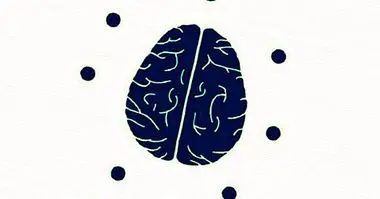Healthy envy: what is it and why is it not so "healthy"?
There are many times spoken of two types of envy: pure envy, based on hostility towards others, and the healthy envy, of which in many occasions we only know that, for some reason, it is not as harmful as the other.
But... What is really healthy envy and to what extent can it harm us?
What is envy?
Appealing to the most consensual definition, envy can be understood as a form of greed, a feeling produced by our desire to possess something that someone who is not us and that we believe should be our . The fact that we see how someone has something desirable that has been denied to us makes unpleasant and painful feelings appear.
Part of this feeling of discomfort that produces envy is based on what is known as cognitive dissonance: we experience how there is an incongruence between our mental scheme of how things are and how things really are, beyond our ideas and beliefs.
In this case, we believe that something belongs to us and, nevertheless, reality shows us that this is not the case . In this way, envy places us in a very uncomfortable situation: that of accepting that ideas about ourselves (and, therefore, those that have to do with our self-esteem) are too optimistic, or that we believe that we have have been victims of an injustice, something that must be resolved through our effort to be able to approach what we believe we have legitimacy to claim.
Envy healthy, a controversial concept
Thus, the generic concept of "envy" that does not reflect the nuances of the idea of healthy envy, is linked to unpleasant sensations. But... Could there be a phenomenon similar to this that does not produce a minimum amount of pain? Is envy healthy something totally different from envy without more, or is it simply the milder and relatively painless version of this phenomenon?
In 2015, a team of researchers published a very specific investigation on this topic that reinforces the first option. In this study it was found that there are significant differences that allow to distinguish between two kinds of envy: one malignant and another benign.
In the first, the person who experiences this sensation focuses his thoughts on the person who has had access to what is coveted and that has not been achieved for oneself. In addition, people who present this type of envy in a particular context show a greater tendency to rejoice imagining that something bad happens to the person they are envious of. People who experience healthy or benign envy, however, focus their thoughts not on the person who owns something that is wanted, but on what is possessed and wanted for oneself.
So, while the evil envy revolves around the thoughts about "luck" that another person has had and the disadvantaged position on which you have departed, healthy envy predisposes us, apparently, to adopt a more pragmatic and constructive point of view .
The bad of healthy envy
So ... can you conclude without saying that healthy envy is the best possible way to experience envy? It's a hasty conclusion. Although healthy envy may be experienced less unpleasantly than the other, it is worth asking the following question: Which of these two types of envy makes us more capable of detecting injustices where they exist? In the absence of more research to help answer this question, "malignant" envy has many numbers to be the one that predisposes us to it.
Healthy envy, by simply focusing on what we want, may be related to an inability to analyze the context in which the other person has had access to a resource of limited availability that has been deprived of us. In some way, it transfers the responsibility of what has happened to oneself, being that sometimes the fact that we can not have something does not have to be due to a problem that we have individually (lack of attitude, laziness, etc.). ) but it may be due to social problems, which can not be reduced to what each individual does on their own.
For example, feeling envious of a person who has a good level of English can be a consequence of the fact that, simply, in our neighborhood the schools that we had the option to attend have a serious lack of resources and funding that did not allow us to Learn English in good conditions.
As usual, The key to finding a sense of certain psychological phenomena is knowing how to contextualize this type of research contrasting them with studies carried out from the social sciences.



















